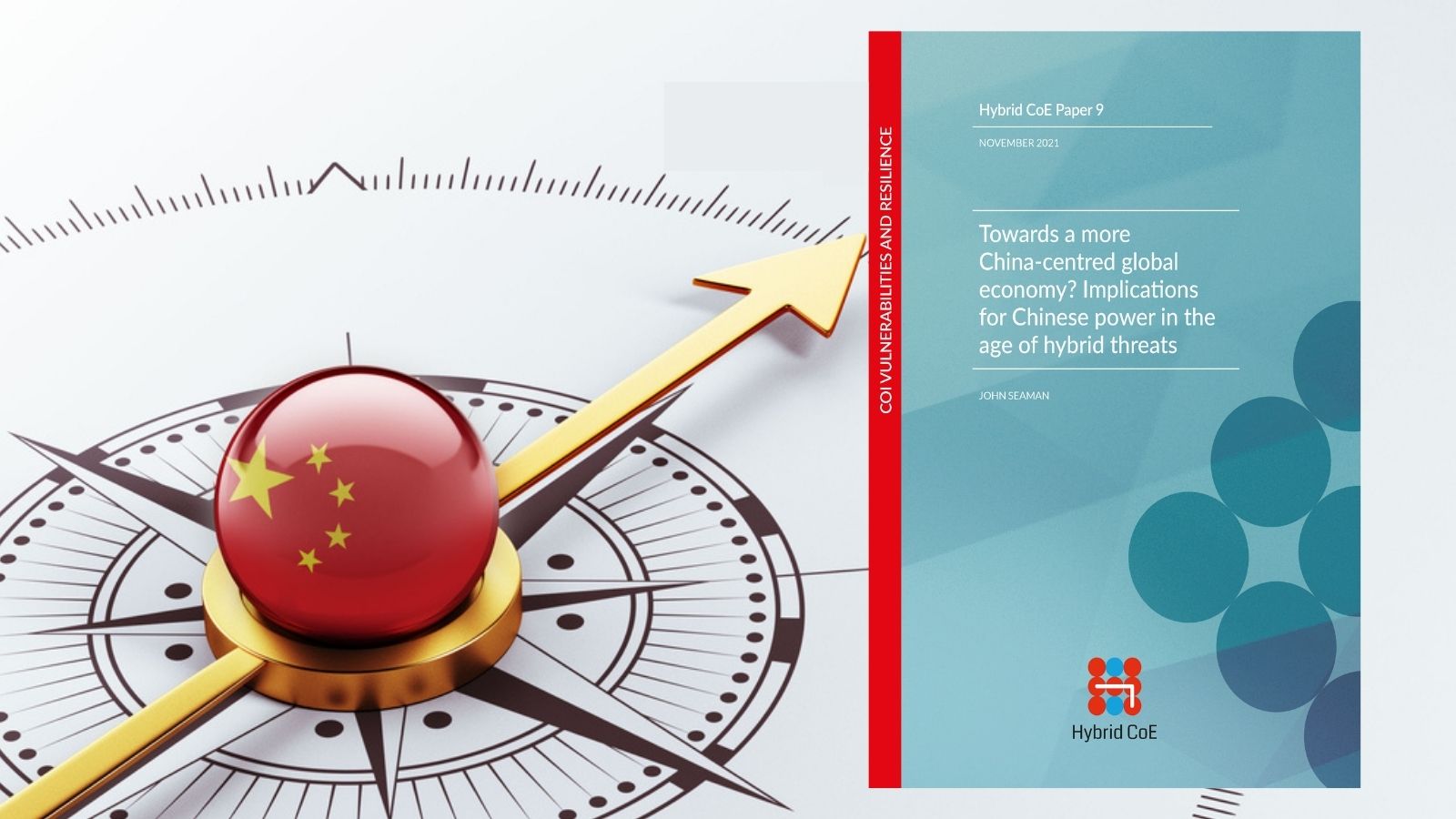Towards a more China-centred global economy? Implications for Chinese power in the age of hybrid threats

An era of hyper globalization is giving way to an age of geoeconomics wherein China seeks a decisive seat at the table.

As China continues to rise, a key question will be whether and to what extent it is able to translate economic prowess into comprehensive national power and global influence. When considering the question of hybrid threats to democratic political systems, China’s role in transforming the global economy raises two broad questions. The first relates to the scope of China’s economic power. To what extent can and will China’s rise transform the global economy in a way that amplifies its power in the age of hybrid threats and undermines liberal democratic institutions and their underlying value systems? The second relates to China’s ambitions with regard to political and social change. To what extent does China seek to undermine liberal democratic institutions and actively export or construct an alternative model?
This paper analyses the rise of a new geoeconomic world order and discusses how economic power is organized and wielded within a context of complex interdependence. It considers how the notion of interdependence has changed from a stabilizing force in international relations into a source of asymmetric power and, conversely, of vulnerability. It describes how a networked global economy produces asymmetric interdependencies that amplify economic power in the hands of states that are able to achieve a degree of network centrality. The paper explores five interrelated actions that China is taking that ultimately increase its network centrality in the global economy today:
- Cultivating resilience through indigenization
- Pursuing high-end import substitution and export promotion (“dual circulation”)
- Establishing hard and soft infrastructure hubs
- Building a narrative and a community framework
- Elaborating upon the relevant tools of economic statecraft
Ultimately, the hybrid threats resulting from China’s increasing economic power can be considered in two different ways: 1) direct, or active threats to liberal democracies stemming from the ability to impress upon or influence key economic infrastructure and actors, and 2) systemic-level threats related to the rules, values and principles on which these systems are built.
This article was published by the European Centre of Excellence for Countering Hybrid Threats.
Access the text from the Hybrid CoE website:
Towards a more China-centred global economy? Implications for Chinese power in the age of hybrid threats

Available in:
Regions and themes
ISBN / ISSN
Share
Related centers and programs
Discover our other research centers and programsFind out more
Discover all our analyses
RAMSES 2024. A World to Be Remade
For its 42nd edition, RAMSES 2024 identifies three major challenges for 2024.
France and the Philippines should anchor their maritime partnership
With shared interests in promoting international law and sustainable development, France and the Philippines should strengthen their maritime cooperation in the Indo-Pacific. Through bilateral agreements, expanded joint exercises and the exchange of best practices, both nations can enhance maritime domain awareness, counter security threats and develop blue economy initiatives. This deeper collaboration would reinforce stability and environmental stewardship across the region.

The China-led AIIB, a geopolitical tool?
The establishment of the Asian Infrastructure Investment Bank (AIIB) in 2016, on a Chinese initiative, constituted an attempt to bridge the gap in infrastructure financing in Asia. However, it was also perceived in the West as a potential vehicle for China’s geostrategic agendas, fueling the suspicion that the institution might compete rather than align with existing multilateral development banks (MDBs) and impose its own standards.
Jammu and Kashmir in the Aftermath of August 2019
The abrogation of Article 370, which granted special status to the state of Jammu and Kashmir (J&K), has been on the agenda of the Bharatiya Janata Party (BJP) for many decades.







